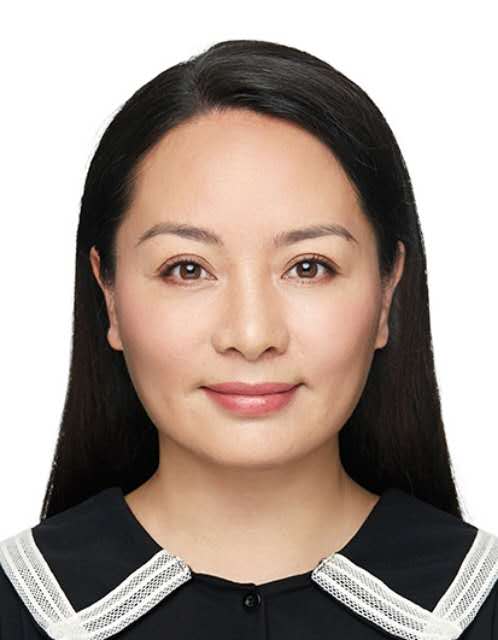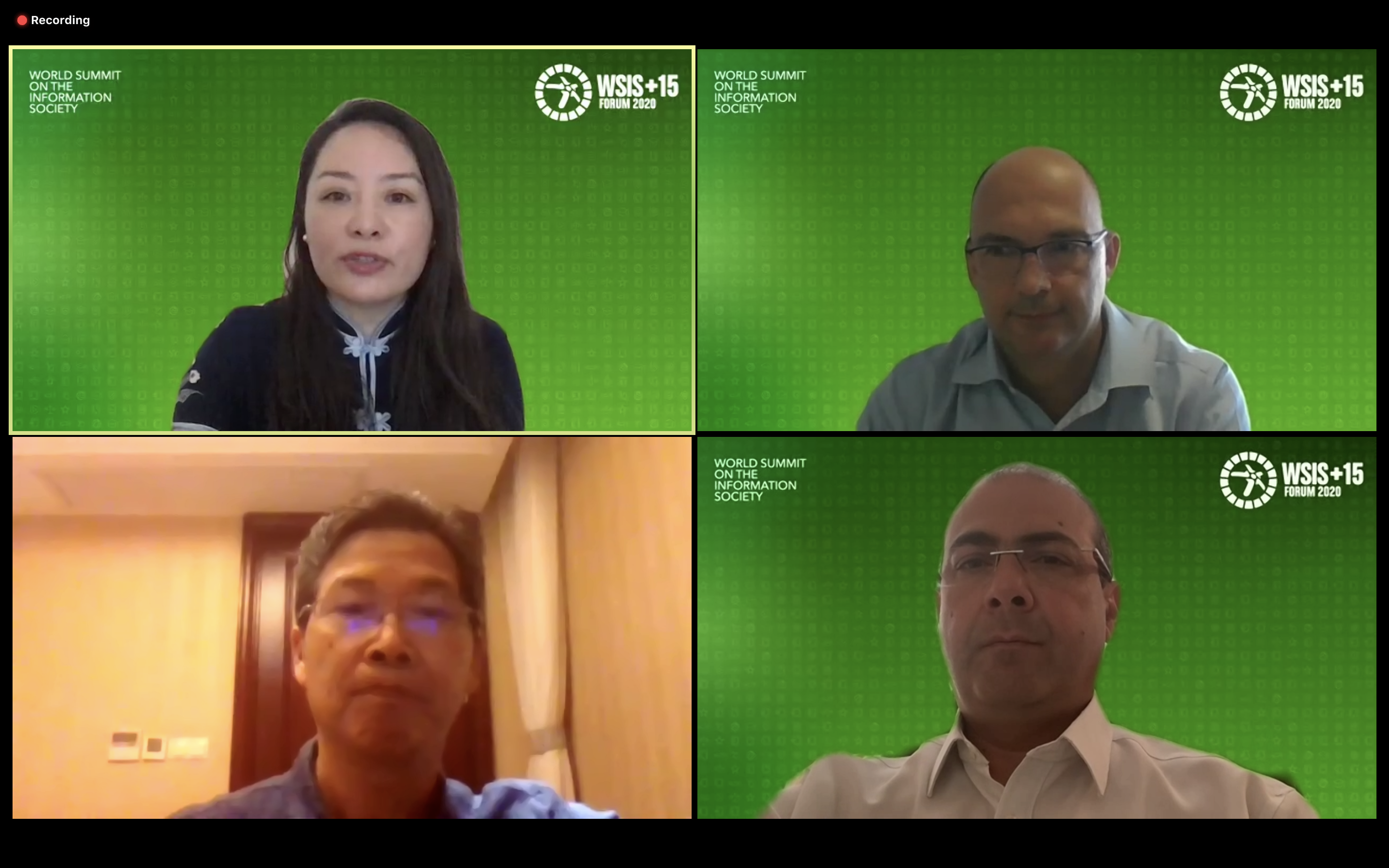ALFM Action Line C7: E-Agriculture
FAO/ITU
Session 330
Fostering an Enabling Ecosystem for Food and Agriculture through Digital Innovation
The food and agricultural sector is going to face enormous challenges to feed the 9.6 billion people who will inhabit the planet by 2050, and food production must increase by 70% by 2050. Innovation is key transforming the food and agriculture sector to address these challenges and achieve the SDGs in line with the WSIS Action Lines. Innovative use of digital technologies contribute to improving livelihoods of farmers, increase nutrition and food security, reduce poverty, and provide solutions to better adapt and mitigate the effects of climate change on agriculture. In addition, innovation and ICTs help us to improve society productivity and to reach the most vulnerable.
However, it is necessary to develop an enabling ecosystem for sustainable food and agriculture to support multi-stakeholders (government institutions, the private sector, civil society and academia) to unleash the potentials of digital solutions. The aim of such ecosystem is to achieve (a) accelerated upscaling of services, (b) reduced digital gaps between urban and rural areas, (c) enhanced public awareness and individuals’ skills, and (d) co-creation through Public-Private Partnerships.
FAO’s International Platform for Digital Food and Agriculture to bridge the gap between international fora for food and agriculture, enhance awareness on issues specific to the digitalization of the food and agriculture sectors and provide policy recommendations to governments to support decision-making at higher levels. Hand-in-Hand is FAO’s evidence-based, country-led and country-owned initiative to accelerate agricultural transformation and sustainable rural development to eradicate poverty (SDG 1) and end hunger and all forms of malnutrition (SDG2). In doing so, it contributes to attaining all of the Sustainable Development Goals. The initiative prioritizes countries where national capacities and international support are the most limited or where operational challenges, including natural- or man-made crises, are the greatest. Recently, FAO launched its Hand-in-Hand Geospatial Platform which supports all stakeholders with rich, shareable data (agro-ecology, water, land, soils, GHG, etc.), respecting the proper protocols of data confidentiality. The platform also includes a subnational system of donor information developed by FAO and its partners. FAO is actively supporting the building of Digital Agriculture and Innovation Hubs to foster innovation ecosystem and culture. This includes: a partnership with Zhejiang University to establish a Centre of Excellence for Youth Innovation and Entrepreneurship in Asia, another partnership with Wageningen University & Research and others to apply for H2020 through a proposal of SmartAgriHubs for Africa. Through joint-efforts, FAO-ITU is developing National e-Agriculture Strategy to support government in optimizing resources for the development of digital agriculture in the process of digital transformation and implementing Smart Village to support rural small holder and family farmers to embrace digital technologies and tools.
Overall, WSIS Beyond 2020 should focus on establishing enabling ecosystem aim to provide better policy recommendations, better use of data, better knowledge transferring and better digital solutions to contribute to SDGs.
AGENDA
• 14:00-14:05 hours, introduction by Meng ZENG (Moderator) - Information Technology Officer, FAO
• 14:05-14:15 hours, Dejan Jakovljevic - Deputy Director, IT Services, FAO
• 14:15-14:25 hours, Longbao Wei – Director, Institute of Food and Agribusiness Management, Zhejiang University
• 14:25-14:35 hours, Hani Eskandar – Digital Services Senior Coordinator, ITU
• 14:35-15:00 hours, Q&A

Ms. Meng ZENG is a Team Lead of Digital Agriculture and Innovation Hubs at IT Services (CSI) of FAO. She holds an MA in Sustainable International Development from Brandeis University. Before joining FAO in 2017, she worked as lead at UNDP in Digital Innovation and Poverty Reduction and at ILO in rural agribusiness and entrepreneurship, and capacity development. Her interests include entrepreneurship and innovation for youth and women, digital knowledge transferring, policy and strategy for the development of digital agriculture, and innovation solutions for Sustainable Development. She currently is leading on Digital Agriculture and Innovation Hubs to create enabling ecosystem and culture for agripreneurs to address development challenges through innovation and partnership. She is also supporting of the establishment of International Platform for Digital Food and Agriculture, aiming to promote discussion and strengthen linkages of international fora for agriculture and food, and provide policy recommendations and technical support to governments and other stakeholders to bridge digital gaps.

Dejan Jakovljevic is the Deputy Director of IT Division of the Food and Agriculture Organization of the United Nations, based in Rome, Italy. Mr. Jakovljevic has more than two decades of experience focusing on strategic aspects of IT, driving organizational modernization and transformation in the International Development domain. He is passionate about bringing digital capabilities and innovation into accelerating impact in support of Sustainable Development Goals. His previous experience includes IT leadership roles in South East Asia and European Region, with UNICEF and WHO.

Longbao Wei is currently Qiushi chair professor of applied economics and agribusiness, deputy dean of China Academy for Rural Development, Zhejiang University, board member and fellow (’2019) of the international Food and Agribusiness Management Association (IFAMA). He has held several other positions at Zhejiang University, including director, Institute of Food and Agribusiness Management; and deputy director, National Key Research Base for Humanities and Social Science, Center for Agricultural and Rural Development (CARD). He has also been a Fulbright Scholar at the Weatherhead Center for International Affairs, Harvard University, adjunct professor at the University of Guelph, and has done work at Iowa State University. He has more than 30 years research and teaching experience in agricultural production, market, trade and policy, industrial clustering and urbanization, and Chinese economic development. Dr. Wei was educated at Zhejiang University, from which he received his doctorate, master's, and bachelor's degrees.

Mr. Eskandar is the Digital Services Senior Coordinator at the Digital Society Division of the Telecommunication Development Bureau of ITU. Mr. Eskandar is currently involved in providing assistance to several developing countries by advising on digital applications and services strategies and policies, assisting in implementing technical co-operation projects in areas of digital health, agriculture, governance and education. He has led the development of several guidelines and best practices reports on digital applications particularly on digital Health, digital Agriculture and digital Government. Mr Eskandar is currently leading major joint programmes with WHO on digital health as well as leading other collaborative activities with FAO and UNESCO in the areas of digital Agriculture and Smart Learning.
Mr. Eskandar has more than 25 years of extensive on-the-ground experience in the field of ICT for Development where he, through working with the International Federation of Red Cross and Red Crescent in Switzerland and, UNDP, Ministry of ICT and other NGOs in Egypt, was involved in several development projects in the fields of Health, Education, Illiteracy Eradication, Community Development, SME development and Micro Credits.
Mr. Eskandar has an educational background in Electrical Engineering (Telecommunications) and has completed an MBA from McGill University, Canada and a Master Degree in Social and Economic Development Studies from University of Paris I, France.
-
 C7. ICT applications: benefits in all aspects of life — E-agriculture
C7. ICT applications: benefits in all aspects of life — E-agriculture
The session is linked to the WSIS Action Line C7 focused on using ICT applications for e-Agriculture. More specifically, e-Agriculture involves the conceptualization, design, development, evaluation and application of in innovative ways to use information and communication technologies (ICT) in the rural domain, with a primary focus on agriculture. The session directly links with this Action Lines and proposes a framework for systematically integrating e-Agriculture at the national level through the creation of a digital innovation ecosystem that supports and fosters the creation and use of ICTs to empower smallholder and family farmers and improve productivity in food systems as a whole.
-
 Goal 1: End poverty in all its forms everywhere
Goal 1: End poverty in all its forms everywhere
-
 Goal 2: End hunger, achieve food security and improved nutrition and promote sustainable agriculture
Goal 2: End hunger, achieve food security and improved nutrition and promote sustainable agriculture
-
 Goal 8: Promote inclusive and sustainable economic growth, employment and decent work for all
Goal 8: Promote inclusive and sustainable economic growth, employment and decent work for all
-
 Goal 13: Take urgent action to combat climate change and its impacts
Goal 13: Take urgent action to combat climate change and its impacts
Digital innovation has the potential to transform the approach to all 17 SDGs. Specifically, the development of a strategic framework for digital innovation in the food and agriculture sector will provide a systematic process and sustainable business model for creating, testing, funding, and scaling new digital solutions to achieving the SDGs, particularly 1, 2, 8, and 13. Through this process, youth entrepreneurship, capacity development, and multi-stakeholder partnerships will be formed that will enable a permanent and systematic to integrate digital technologies and innovation into local communities and national action plans. These activities contribute to SDGs 1,2 8, and 13 as well as establishing business models to produce new ideas and products aimed at contributing and achieving all the SDGs.
Concept note for International Platform for Digital Food and Agriculture: http://www.fao.org/3/ca7485en/ca7485en.pdf
164th Session of FAO Council on International Platform for Digital Food and Agriculture: http://www.fao.org/webcast/home/en/item/5330/icode/
Hand-in-Hand (HiH) Initiative: http://www.fao.org/hand-in-hand/en
Launch of Hand-in-Hand Geospatial Platform: http://www.fao.org/webcast/home/en/item/5328/icode/







